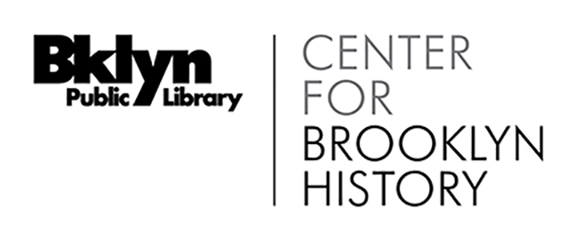Brooklyn Engineers' Club publications
Call Number
Date
Creator
Extent
Language of Materials
Abstract
The Brooklyn Engineers' Club publications span the years 1897 to 1973 and are housed in four manuscript boxes. Included in the collection are annual proceedings and monthly bulletins published by the Club. The Brooklyn Engineers' Club was incorporated on December 29, 1896. The purpose of the Club was to promote social and professional intercourse and to advance engineering knowledge and practice. Membership consisted of four levels: Corporate, Associate, Non-resident, and Honorary members. Corporate and Associate members were required to either live or work in one of the five boroughs of New York City. The Brooklyn Engineers' Club clubhouse was located at 117 Remsen Street (between Clinton and Henry Streets) in the neighborhood of Brooklyn Heights. As of 2010, the brownstone building was the home to Congregation B'nai Avraham and to Kiddie Korner Preschool.
Historical note
Engineering has been inextricably linked to New York State since the early 19th century, as it was the birthplace of professional engineering in the United States. The U.S. Military Academy at West Point, located 50 miles north of New York City along the Hudson River, offered civil engineering as an academic subject when it was founded in 1802. In 1835, Rensselaer Institute (now Rensselaer Polytechnic Institute), also located along the Hudson River in Troy, N.Y., granted the first civil engineering degrees in the United States. The first professional engineering society in the United States also originated in New York--the Association of Civil Engineers (ASCE) was founded in New York City in 1852. In Brooklyn, the Polytechnic Institute (now Polytechnic Institute of NYU), founded in 1854, is regarded as the second oldest private school of engineering and technology in the United States.
The Brooklyn Engineers' Club was incorporated on December 29, 1896. The purpose of the Club was to promote social and professional intercourse and to advance engineering knowledge and practice. Membership consisted of four levels: Corporate, Associate, Non-resident, and Honorary members. Corporate and Associate members were required to either live or work in one of the five boroughs of New York City. The Brooklyn Engineers' Club clubhouse was located at 117 Remsen Street (between Clinton and Henry Streets) in the neighborhood of Brooklyn Heights. As of 2010, the brownstone building was the home to Congregation B'nai Avraham and to Kiddie Korner Preschool.
Sources:
- Goldman, Joanne Abel. "Engineering." In The Encyclopedia of New York City, edited by Kenneth T. Jackson, 376-377. New Haven, Conn.: Yale University Press; New York: New-York Historical Society, 1995.
- New York University. "Polytechnic Institute of NYU." Accessed December 17, 2010. http://www.nyu.edu/about/leadership-university-administration/office-of-the-president/office-of-the-provost/redirect/faculty/new-faculty/new-faculty-0910/polytechnic-institute-of-nyu.html
Scope and Contents
The Brooklyn Engineers' Club publications span the years 1897 to 1973 and are housed in four manuscript boxes. Included in the collection are annual proceedings and monthly bulletins published by the Club.
The proceedings were originally published annually and later (circa 1920) quarterly--in January, April, July, and October. The proceedings contain the Club's constitution and bylaws; membership lists (includes name of member, their work title, their work address, and date the member was elected into the Club); proceedings from the annual meeting; reports and addresses from officers; papers read at regular meetings throughout the year (includes content, images, graphs, fold-out drawings, and transcripts of the discussions that followed the paper presentations); member obituaries (if applicable); lists of new additions to the library; and an index to advertisements.
The Bulletin was published monthly except during the months of June, July, August, and September. In 1956, the title of the publication was changed to The Brooklyn Engineer. The bulletin served as a forum to notify members of upcoming meetings, the agenda for the meetings, and general news updates such as the latest applications for membership. The meetings generally began with the discussion of Club related business, followed by a presentation of a paper pertaining to engineering. Examples of papers presented include "Mechanical Methods of Stress Analysis;" "The Brooklyn Waterfront;" and "The Kill Van Kull Bridge."
Box 1 contains: Proceedings, 1897 to 1906.
Box 2 contains: Proceedings, 1907 to 1915.
Box 3 contains: Proceedings 1916, January 1923 to January 1931. From 1923 on, the proceedings were published quarterly--in January, April, July, and October.
Box 4 contains: Brooklyn Engineers' Club Bulletin, 1929 to 1956 and The Brooklyn Engineer, 1956 to 1973.
Subjects
Organizations
People
Donors
Conditions Governing Access
Open to researchers without restriction.
Preferred Citation
Identification of item, date (if known); Brooklyn Engineers' Club publications, ARC.156, Box and Folder number; Brooklyn Historical Society.
Immediate Source of Acquisition
Gift of the Brooklyn Engineers' Club, date unknown, and Kathy Russo, 2011.
About this Guide
Processing Information note
Minimally processed to the collection level by Patricia Glowinski in December 2010. Additional content contributed by Emily Reynolds on January 14, 2011. An additional copy of the club's 1911 Proceedings was donated by Kathy Russon in 2011 and added to the collection by John Zarrillo in December 2016.
Sponsor Note
Repository
Container
This finding aid does not include an online listing of contents.
To learn about viewing this collection in person, please contact cbhreference@bklynlibrary.org.
